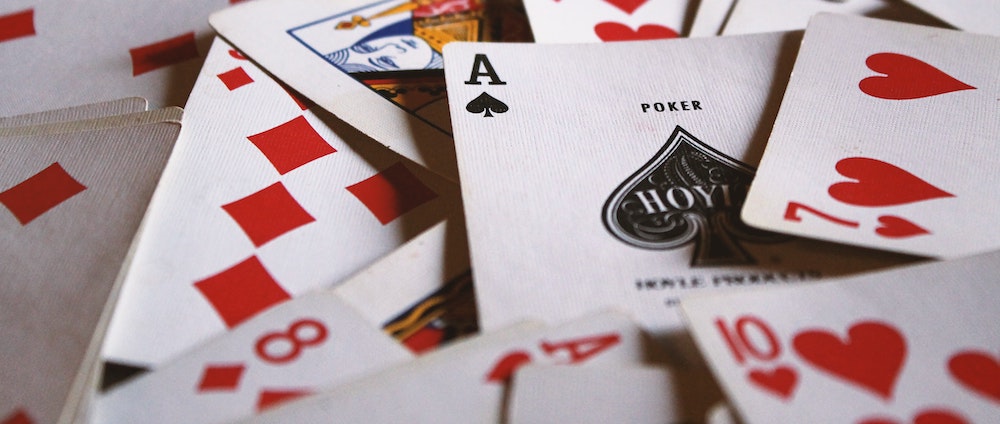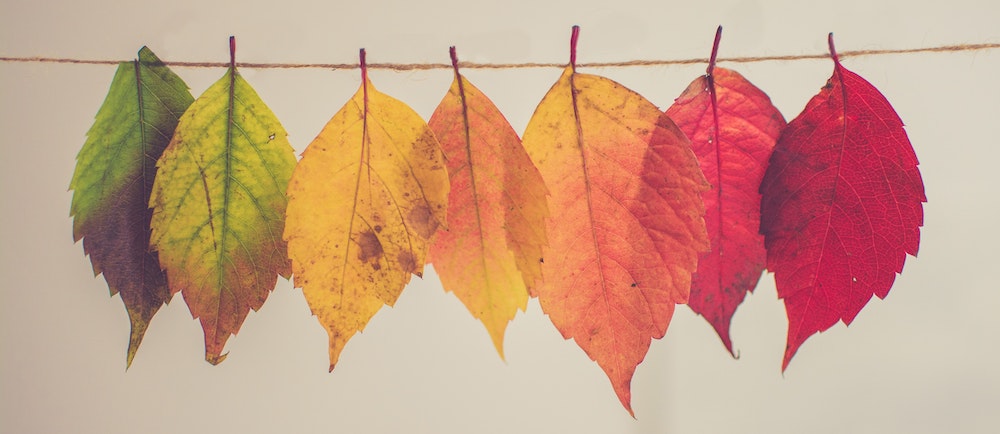Today, I took a long walk through the streets of Paris. I saw restaurants and stores preparing to re-open—stocking up and getting ready. This brought about mixed feelings. Will this go well? I’m not so sure. We made a transition over these past weeks and months from life as we knew it to the “new beautiful,” and now we will move out of confinement back into the world, slowly, one step at a time. Change can be challenging and there has already been so much of it. How can we move though this next shift with ease?
The Cycle of Change
In his 1980s groundbreaking book “Transitions,” William Bridges first mapped out the cycle of change. According to Bridges, every transition begins with an ending, and ends with a beginning. In between ending and beginning is a discomfiting neutral zone that most people would rather avoid, but which is essential for personal growth.
Bridges writes, ”Divorces, deaths, job changes, moves, illnesses, and many lesser events disengage us from the contexts in which we have known ourselves. They break up the old cue system that served to reinforce our roles and pattern our behavior.”
We all react differently to change. And while most of us understand that change is inevitable, it can still blindside us. Some people thrive on it and the energy it brings into their lives. Others only cope with it, surviving it and doing anything they can to avoid it.
As a Relationship & Recovery Coach, I use these cycles of change to identify a client’s current state and help them move to the next stage. Nonetheless, I am sometimes caught off-guard in my own life, even now. But there has never been such an enormous change for me as entering recovery.
In my free Zoom group THRIVING IN CAPTIVITY, we will be exploring these stages of change and where we are at individually in that cycle. If you’re interested in joining, you can email me directly for the link at dufflynlammers@gmail.com. The videos for each week are posted on my Instagram page as well.
Recovery is Transition
In 2002, I was living in Los Angeles with an ex-boyfriend in a “complicated” relationship. One night, when I was driving home from a comedy show, jacked up on cocaine, I stopped at a gas station where the cutest cowboy I’d ever seen came walking toward me.
I gave him my phone number, and when we went out, he revealed that he had two years of abstinence from drugs and alcohol. He stopped returning my phone calls, so I went to the place I knew I could find him: a meeting. I stayed long enough to realize that I belonged there—that I, too, needed to finally give up addictive substances.
My Stages of Change on the Road to Recovery
In order to stop using, I first had to let go of my old life. My old boyfriend. My old concept of self. And to grieve that. That was my first stage.
Stage two, for me, was what is sometimes referred to as a “pink cloud.” I was just so relieved that there was another way.

Stage three lasted for years. I had successes and failures, and although I knew I couldn’t go back, I was sometimes disenchanted with life in general. Here was where I felt the most resistance, actually, because I had already changed so much. I didn’t want to go through it again.
At about 8 years of recovery, I hit stage four. And it was hard. Things had not worked out like I had planned. And I started over again in recovery. I began a daily meditation practice that was almost as much of a change as letting go of drugs.
And this is how it goes. We change, then change some more, and then we change again.
Changes in a Post-Pandemic World
Today, I find myself at a similar crossroads. This pandemic has brought so many changes already, and now we are being asked to make this gradual transition—but to what?
When we resist, it often comes from perspective. While we comprehend it intellectually, our curiosity may cause all rationale to fly out the window when the moment of change actually comes. Understanding the process of change can alter our perspective and give us tools to manage our response and go with the flow.
Looking at our belief systems, values, relationships, health, environment, and priorities can help us to see what influences how we view changes. Let’s explore the cycles of change to first identify where we are at.
The Four Stages
There are now many models to explain the stages of change. They all include an end, a neutral space, and a new beginning. I’ll use what I learned during my coaching training from Bruce D. Schneider, the founder of the Institute for Professional Excellence in Coaching (iPEC). This is a very simple, down-to-earth, non-clinical way to look at things anyone can understand and apply using the metaphor of a card game.

Stage One (Shuffle)
In the first stage of change, we must simply detach from what was not working, or from the cycle that has come to an end. This phase is like a “time out,” where we get the chance to heal, reflect, and consider where we’ll go next. We separate from what is familiar. During this time, we evaluate our values, beliefs, feelings. What is really important to us?
We research, network, explore, and brainstorm. We take stock of our lives during this time.
During this stage, we also have to let go of our feelings of loss, as there is always something we leave behind when we start over. There must be a sense of closure if we are to find our new beginning.
Toward the end of this cycle, we create a plan to grow—to cultivate new strengths, hope, and purpose—and become open to new possibilities. A fear of the unknown is likely to accompany this process, but even so, we must decide how and when to take action, and find a place to begin.
What is the first step?
Stage Two (Deal)
This is the action phase. We can experiment—maybe read some literature, explore, or survey our network for ideas. Here, we dismantle the old to make room for the new. We let go of what is no longer needed. What are the possibilities? This is a stage of optimism. We are finding direction. We feel eager to stretch our legs. This is where we begin to formulate a plan.
In this stage, we may shy away from making big commitments, preferring to take things one step at a time. This will sound familiar to those of you in recovery. Here, we are just trusting the process. There is always reassessment and evaluation, but in this stage, we feel like we’re starting to see a path forward.
We develop clarity, new expectations, and begin to take action. It feels exciting, and our energy may be higher, but there also may be feelings of failure or success at times. Sometimes our old patterns will rise up to challenge us during this stage. We must look out for old ideas about who we are and what we can, or cannot, do.
How do our purpose and our passion connect to the place we are going next?
Stage Three (Play the Game)
Here we begin to implement the plan we developed in stage two. In this stage, we may experience success or disappointment and new challenges. We may feel some self doubt and even self sabotage. As we discover what no longer makes sense, we may feel a sense of disenchantment.
We may be super excited and feel connected to our purpose. Or we may feel a fear of inadequacy. Much of how we are feeling at this point depends on our ‘outside’ results and the clarity of the goal we are moving towards.
Here it is especially important to stay in the solution. We need to get out of our own way and look at what is working, and also correct what’s not working. It’s normal that we may need to course-correct a bit during this time. Success is in the process, the playing of the game itself.
What is the bottom line for us?
Stage Four (Toss In)
There is a season for all things. Sometimes, a season ends with “failure,” and sometimes with “success.” Either way, we are rarely ready for a season to end, be it the end of a job, a relationship, or confinement.
We may feel stuck, with a sense of hopelessness and inertia. Isolation, abandonment, and depression can all play a role in this phase. Since this stage is about re-evaluating our identity, any and all of these feelings are normal. There are forces beyond our control in this world, and we don’t have to be victims to them. We can release that negativity so that we can move forward.
Bridges described this as “an empty in-between time when… everything feels as though it’s up for grabs and you don’t quite know who you are or how you’re supposed to behave.”
We may feel like wrapping ourselves up and just staying in bed, hibernating, like a caterpillar in a cocoon. But we will eventually break out and pass through to a new life.

Life is full of changing seasons. Even though one season is ending, we will get to experience a new season. It is important not to skip this stage. If we do, we risk poor decision making. While it is a period of formlessness, it is also about renewal. Many cultures even have rituals to mark transitions such as these, such as ceremonies to celebrate the transition from childhood into adulthood.
How have we grown from our experiences?
Identifying which cycle of change you are in right now can help you to make an effective transition and move to the next cycle at the appropriate time. It doesn’t mean that an entire experience has to be over (after all, we are still currently in a pandemic), but a certain aspect of it may be changing, and as such, we are too.
Approaches to Change
There are a number of different methods to manage conflict and change. Some of these are:
- Remain a victim to it
- Avoid the challenge
- Change the situation
- Alter your perspective
- Accept it
Taking a strategic approach can relieve a bit of stress by providing a sense of containment. Here is where we have the chance to shift our perspective.
Can we look at it another way?
Is there a different approach that would serve us better?
Looking at these options, which one are we currently choosing?
Which one would we rather choose?
If we can learn to dance with the uncertainty, we will be liberated from some of the fear, and we can gain important wisdom. As the Dalai Lama writes in his 18 Rules for Living, “When you lose, don’t lose the lesson.”
Find Dufflyns Website HERE






